 Your new post is loading...
 Your new post is loading...
A critical perspective on digital learning is desperately needed, and I hope that future scholarship will engage with this perspective, not simply to criticize online learning for being unlike face-to-face learning, but to drastically improve the design and functions of education overall. Scholarship should evoke change, and academics, particularly academics in schools of education, should strive to improve our societies in meaningful ways. By applying research to practice, we can make strides towards creating equitable, effective and supportive digital learning environments.
Via Nik Peachey
Learning will remain highly relational for most of us, but those relationships will increasingly be informed by data. Students parents and advisors will make more decisions about learning pathways but those decisions will be nudged and guided by informed recommendations.
Via Nik Peachey
We’ve Only Just Begun to Explore the Ways in Which Technology can be Used to Improve How we all Learn It is common knowledge that an array of technological advancements have made many medical miracles
When Used With Tact, These Techniques can Help to Make Your Presentations Fun and Engaging It'd easy to bash PowerPoint, especially given the poor uses we see
For the past half-century, and particularly since the 1983 “Nation at Risk” report, Americans have been heaving great sacks of money at schools. Federal spending alone has tripled since the 1970s. The New York Times calculates that the federal government now spends $107.6 billion on education yearly, which is layered over an estimated $524.7 billion spent by states and localities. (Source: National Center for Education Statistics.)
#ad#Reformers have urged — depending upon where they stand ideologically — smaller class sizes, more accountability, merit pay for teachers, and educational choice. Each year seems to bring a new fad: child-centered learning; new math; cooperative learning; and so forth. The No Child Left Behind reform focused on testing. There have been proposals to repeal teacher tenure and to provide every child with a laptop. And always there are fights over curriculum — the Common Core being the controversy du jour.
But perhaps the most promising thinking about education arises from the discovery of economist Erik Hanushek that the most important factor in student performance is the quality of the teacher. Not class size. Not spending per pupil. Not even curriculum.
Our system produces some great teachers, but only by luck. Each year, 400,000 new teachers enter American classrooms, many knowing little about the nuts and bolts of teaching. As Elizabeth Green argues in her new book, Building a Better Teacher: How Teaching Works (and How to Teach It to Everyone), our education schools do not teach the mechanics of teaching — how to control a classroom, how to engage students’ imaginations, how to check for understanding. They’ve been sidetracked by educational psychology and fads at the expense of teaching how to teach.
Green cites “education entrepreneurs” including Doug Lemov, author of Teach Like a Champion, and Deborah Loewenberg Ball, now dean of the University of Michigan’s school of education, who focus on helping ordinary teachers become great.
Lemov, an education reformer and consultant, was struck by something he found when he pored over statistics from the state of New York. While the correlation between zip codes and educational success was notable, there were always outliers — schools or classrooms in which even kids from impoverished backgrounds were doing well. Lemov zeroed in on those schools and those particular teachers.
The result is indicated in the subtitle of his book: “49 Techniques That Put Students on the Path to College.” Some of the techniques are inspired, others are quotidian but still important (like how not to waste time pleading for responses). The point is that teaching is a performance every day, which is not easy. Teachers must spark the interest and keep the attention of their students (who bring all kinds of troubles from home), encourage the weak ones along with the strong, maintain discipline, and build a sense of team spirit. Lemov doesn’t believe that anyone can be a great teacher, but he does think that with coaching and mentoring, good teachers can become great.
Some of Lemov’s proven techniques will not surprise educational traditionalists. He believes in drilling, though he calls it “muscle memory.” A great teacher will drill arithmetic skills, for example, until they are second nature, so that students needn’t stumble over the easy stuff when they get to algebra and geometry. (Education schools had disdained this as “drill and kill.”) Another technique Lemov suggests is “cold calls” — that is, having the teacher choose students randomly rather than just those who raise their hands. Each child, knowing he might be called upon, must be ready. (It works in law schools.) A companion technique is “no opt out.” If the child says he doesn’t know, the teacher asks a related question to another student to narrow down the possible right answer and returns to the first child for a second chance.
There are broad suggestions about classroom management and more subtle and difficult challenges such as maintaining “emotional constancy,” which is refraining from showing anger when a child gives the wrong answer. Anger will teach a child to try to hide his ignorance rather than accept it as a normal part of the learning enterprise.
Teaching is a craft. It may be among the hardest to master. Renewed attention to teaching teaching seems long overdue.
— Mona Charen is a nationally syndicated columnist and a senior fellow at the Ethics and Public Policy Center. © 2014 Creators Syndicate, Inc.
Search literacy is an important element of the 21st century learning. The web is teeming with all kinds of information and part of this information is nothing but junk. To let our students and kids surf this ocean of information without equipping them with the necessary gear is analogous to canoeing through turbulent waves, chances of staying afloat are next to impossible.
As a student, I had great difficulty concentrating during lesson time and consequently didn't retain much knowledge. I was diagnosed with dyslexia and had the symptoms of attention deficit disorder.
Sometimes you're just stuck in a creativity rut. Check out these 27 simple ideas to boost your creativity!
Students want to be engaged in class. They really do -- but sometimes other things get in the way of their natural instincts. A few changes to how a teacher runs a classroom can make a huge impact on
How A Good Teacher Becomes Great Good teachers are amazing–and rare. The ignorance of the Those who can’t, teach mantra is frightening–being a good teacher is an incredible challenge to achieve consistently. Good teachers use data to drive instruction, know the ins and outs of their curriculum, have refined assessments over and over until they measure depth of content knowledge and not procedural knowledge or some crazy game of remember what the teacher said, or guess what the teacher’s thinking...
The process of curriculum design 1 combines educational design with many other areas including: information management, market research, marketing, quality enhancement, quality assurance and programme and course approval. The curriculum must evolve to meet the changing needs of students and employers. It must change to reflect new needs, new audiences and new approaches to learning. Considered use of technology as part of the curriculum design process can help you to . . .
To learn and not to do is really not to learn. To know and not to do is really not to know. (Photo credit: planeta) By David Slocum For many leaders, the commitment to learning – both their own and that of their workers – is a given.
|
Do you think you either have inspiration or you don't? Leta Soza differs. She believes inspiration can be learned, and offers five websites to back up her assertion that creativity can be taught.
An informative title for an article or chapter maximizes the likelihood that your audience correctly remembers enough about your arguments to re-discover what they are looking for. Without embedded...
Universities encouraged to use social media and business-orientated software to enthuse students
The Lecture Will Always be Around, as it Should Be, but it Should Also Keep Evolving From time to time I've derided the long, staid lecture here on the site.
Share on FacebookTweet ThisGoogle+Pin ItLinkedIn There are, of course, just the two certainties in life – death and taxes and all that – but if there’s a third, then it’s that, at some point, we’ll have to take exams. So what’s the harm in a little nudge in the right direction? A little extra help? …
If every blog followed the 11 Essential Ingredients Every Blog Post Needs in this infographic, ...
Here's the second part of what I said yesterday at the ResearchEd event near Birmingham. From a hundred years of research, there are three deceptively simple insights that when applied well in the ...
It is suggested to pay due attention to simple mistakes that can ruin your presentation. Do you remember the last time you came across a presenter who breathed excellence into a presentation with his remarkable skills. Well, chances are quite rare! Or in that case, you can probably recollect the bad ones comparatively easily. This is largely because most of us are afraid of public speaking.
Each year after holiday break I told my students their writing would change forever. It was simple statement, but most of them did not take it seriously. What ensued was “Writer’s Boot Camp”. A 10-day writing program I put my students through each year. It didn’t matter if I taught 8th graders or 11th graders, …
It may not be rocket science, but it sure is neuroscience: Happy learners are healthy learners. While this may seem like (ahem) a no-brainer, there is a good amount of neurological evidence to promote the idea that if students do not feel comfortable in a classroom setting, they will not learn. Physiologically speaking, stressed brains are not able to form the necessary neural connections.
Want to give better presentations? Sound confident? Catch your breath when presenting? Check these tips to improve the presentation skills of PhD students.
|



 Your new post is loading...
Your new post is loading...



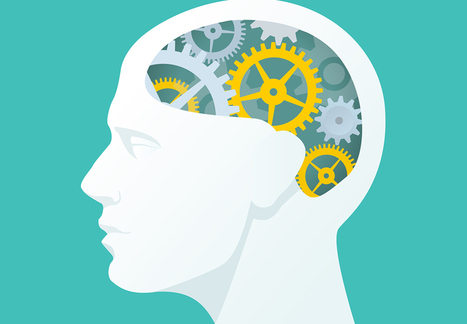

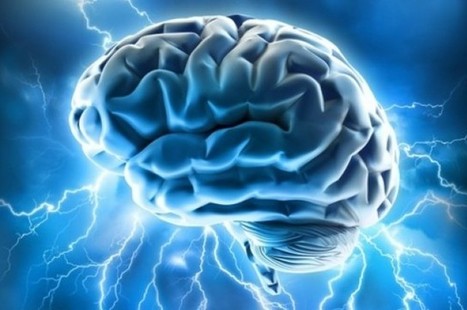
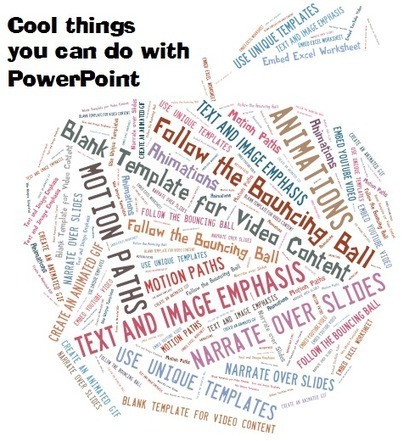

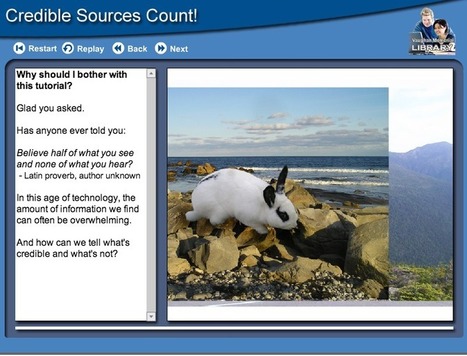


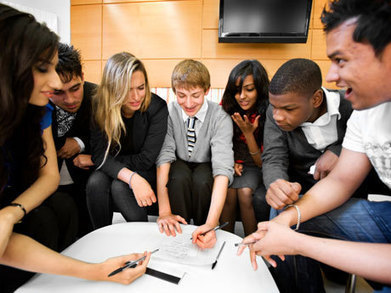

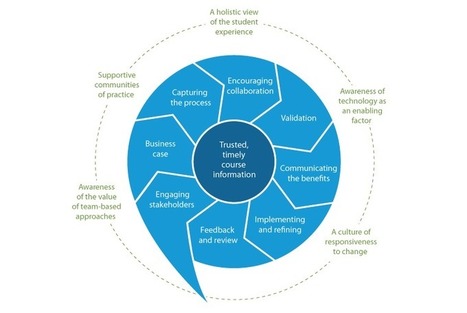
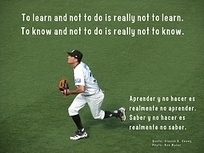




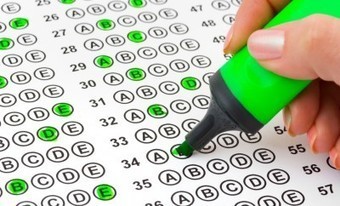
![11 Essential Ingredients Every Blog Post Needs - [Infographics and Data Visualization] Cool Infographics | Information and digital literacy in education via the digital path | Scoop.it](https://img.scoop.it/jmSbGNnpF0r75nMy3xJQTDl72eJkfbmt4t8yenImKBVvK0kTmF0xjctABnaLJIm9)

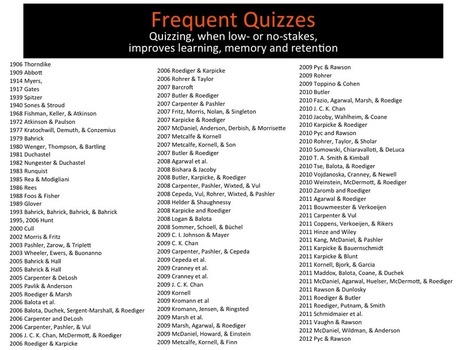
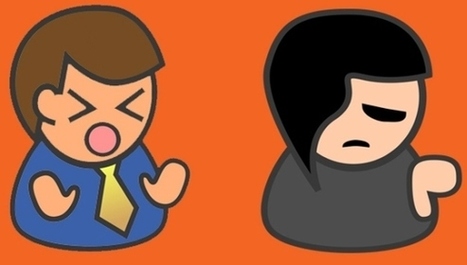

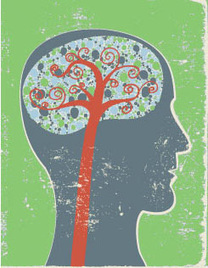
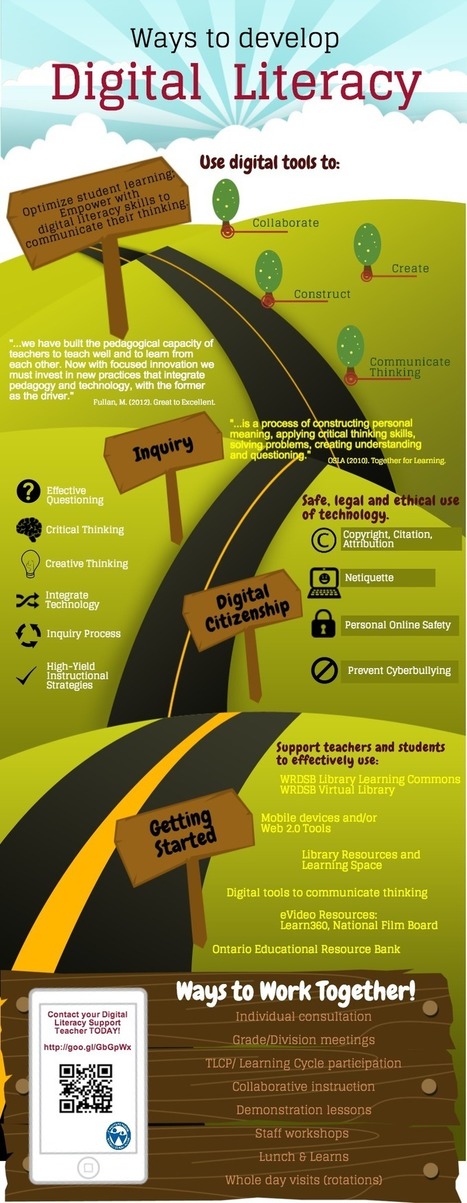
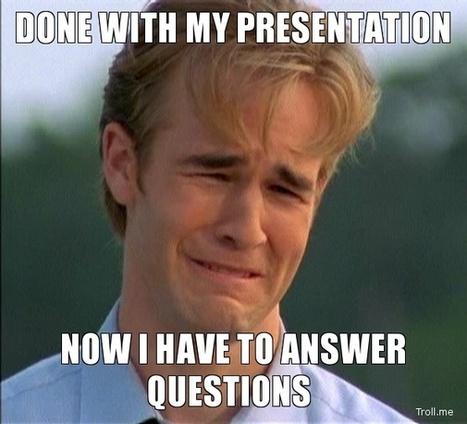





Interesting and insightful article.